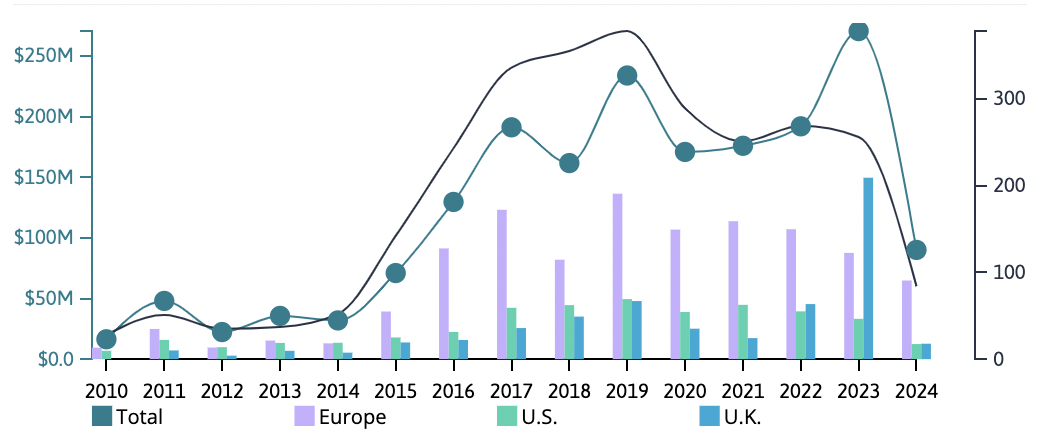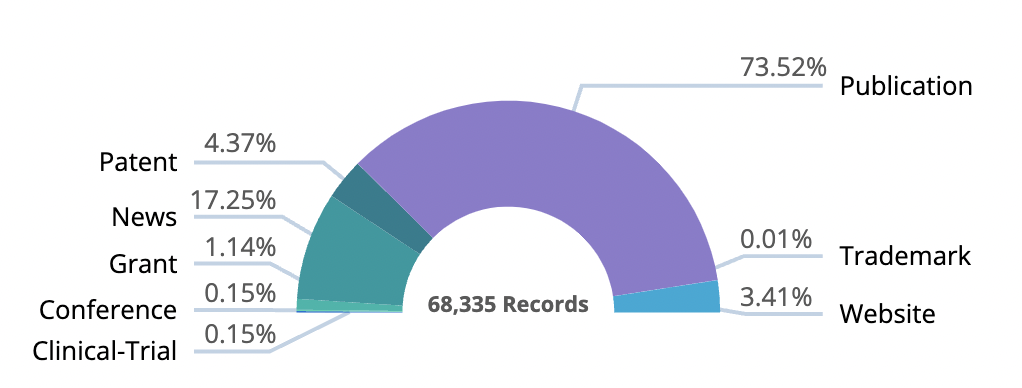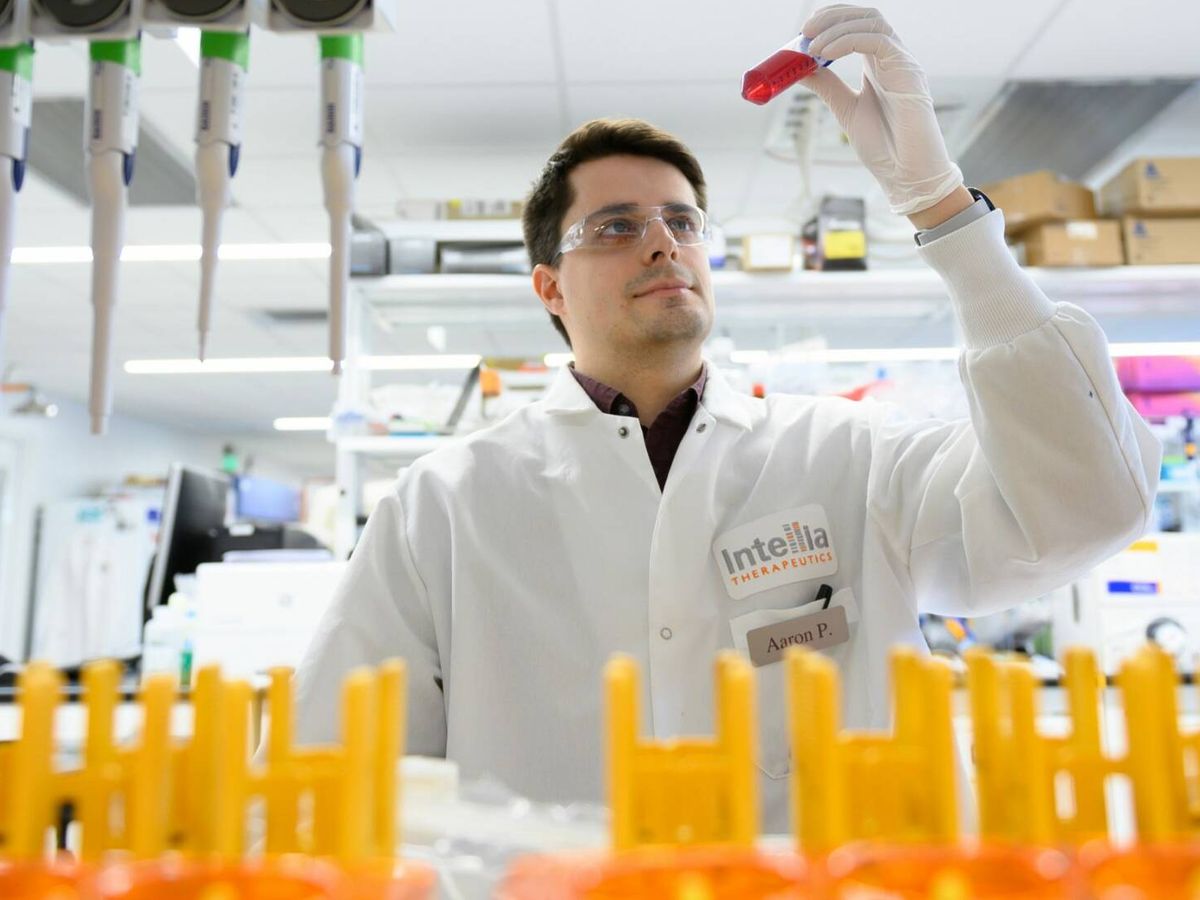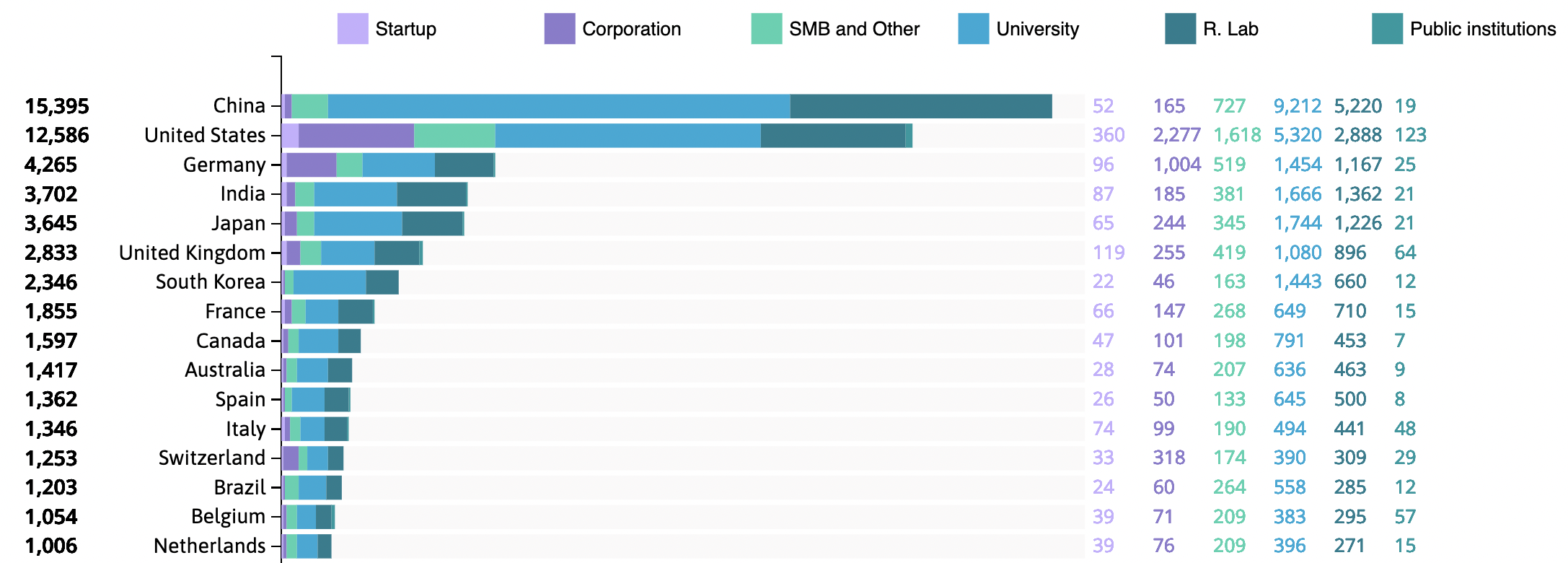Genetic engineering has established itself as one of the most innovative and promising technologies in the field of modern biotechnology. This discipline, which in 2023 reached a market value of USD 1.36 billion, is experiencing exponential growth and projections indicate that, by 2032, this market will reach USD 7.73 billion, representing an impressive annual growth rate of 20.94 %.
Genetic engineering involves the direct manipulation of the DNA of organisms to alter their characteristics in a controlled and precise manner, covering a wide range of techniques and applications, from gene editing using CRISPR-Cas9 to cloning and gene therapy. These techniques make it possible to introduce, eliminate or modify specific genes within an organism, opening endless possibilities in various areas. In medicine, it’s revolutionizing the treatment of hereditary diseases and cancer through the development of personalized therapies that precisely target genetic causes. It is also having a significant impact on agriculture, with genetically engineered plants that are more resistant to pests, diseases and adverse weather conditions, increasing agricultural productivity and sustainability.
The rapid growth of the genetic engineering market is also driven by the increasing incidence of genetic disorders. As more people are diagnosed with these diseases, the demand for effective and personalized treatments is growing, spurring research and development of new genetic techniques. This urgent need for innovative medical solutions is accelerating market evolution, attracting significant investment and fostering collaborations between biotech companies, academic institutions and research centers.

Public funding to genetic engineering projects by year. Source: Linknovate
Top technologies in genetic engineering
Leading this change, we found innovative methods that allow DNA to be manipulated with unprecedented precision, opening a world of previously unimaginable possibilities.
1. CRISPR technique
CRISPR (Clustered Regularly Interspaced Short Palindromic Repeats) is a revolutionary technology in the field of genetics that allows DNA sequences to be modified in a precise, efficient and economical manner, which in a very short time has become a key tool for gene editing in various biological and medical applications.

CRISPR, Record by Typre. Source: Linknovate
Many start-ups have specialized in the development and implementation of this technique, such as Locus Biosciences, which has created a platform to design and administer customized CRISPR-Cas systems directly to specific bacteria, allowing to treat bacterial infections in a precise and effective way.
Myllia Biotechnology combines CRISPR screening with single-cell sequencing, an approach that has broad applications in identifying new drug targets and elucidating unknown mechanisms of action in drugs. SNIPR Biome is another preclinical biotechnology company that is developing CRISPR-based therapeutics with the goal of modulating the human microbiome by precisely eliminating pathogenic bacteria.
Finally, Intellia Therapeutics leverages CRISPR and novel Cas enzymes as a next-generation molecular detection platform, enabling rapid and accurate identification of pathogens and genetic markers, and Hudson River Biotechnology specializes in the plant kingdom, developing solutions to improve plant functions through CRISPR-based plant breeding.

Intellia began testing the cell therapy in patients in March 2022. Source: Intellia Therapeutics
2. Plant breeding
Plant breeding, also known as plant improvement, is the science of genetically modifying plants to develop new varieties with desired characteristics. This tech combines genetics, agronomy, and biotechnology to produce plants that offer higher yields, are more resistant to diseases and pests, tolerate adverse weather conditions, or have better nutritional quality.

Protealis is one of the leading start-ups in this technology, promoting the cultivation of sustainable plant proteins in Europe. Its focus is on developing plant varieties that can meet the growing demand for plant proteins, promoting sustainable agricultural practices and reducing dependence on protein imports.
Amatera is pushing the boundaries of in vitro breeding by accelerating the natural evolution of plants, their selection and hybridization to create improved, non-genetically modified varieties.
Australian company ART Lab Solutions focuses on farming, offering in vitro fertilization (IVF) solutions for livestock breeding, optimizing an in vitro embryo production system that facilitates rapid genetic gain in livestock breeding programs. On the other hand, Benson Hills is a supplier of plant-based food ingredients that uses AI technology for genetic diversity within plants to optimize nutrition, flavor profiles and yield. Finally, Hi Fidelity Genetics has developed RootTracke, a platform for analyzing root growth in the field, and Luther, a comprehensive AI breeding engine. The platform measures certain crop-specific and environmental parameters to build a plant growth model leveraging predictive analytics.
3. Genomes sequencing and assembly
Genome sequencing is another growing technology. It refers to the process of determining the exact order of the nucleotides (adenine, thymine, cytosine and guanine) that make up an organism’s DNA. Genome assembly, on the other hand, consists of assembling the sequence fragments generated during sequencing into a continuous and complete sequence. Since current sequencing produces small pieces of the genome, it is necessary to assemble them to obtain a coherent representation of the complete DNA.

Genome sequencing & assembly, Records by type of organisation. Source: Linknovate
Among the startups and companies specializing in these techniques, Spanish company Microomics stands out as a leader in the characterization of the microbiome through metagenomic analysis using next-generation sequencing (NGS) technologies.
10x Genomics, Inc. a U.S. biotechnology company, designs and manufactures gene sequencing technology for scientific research. Its solutions enable detailed, high-resolution genome analysis, facilitating advances in areas such as cell biology and cancer genomics.
Pacific Biosciences of California, Inc. also known as PacBio, is another influential company that designs, develops and manufactures sequencing solutions to solve genetically complex problems: its long-read sequencing technology is particularly effective for assembling complex and repetitive genomes, providing a more complete and accurate view of DNA.
Oxford Nanopore Technologies plc (ONT.L) is engaged in the research, development, manufacture and commercialization of a nanopore-based sequencing platform that enables real-time analysis of deoxyribonucleic acid (DNA) or ribonucleic acid (RNA).

Unlike previous sequencing technologies, ONT uses a barrel-shaped protein called α-hemolysin as a nanopore instead of DNA polymerases Source: Oxford Nanopore Technologies.
Last but not least, NanoString Technologies, a Bruker company, stands out in this sector as a provider of life science tools for translational research. Its advanced technologies enable the precise quantification of specific molecules in biological samples, facilitating detailed investigations in areas such as oncology and immunology.
4. RNAi
Finally, RNA interference (RNAi) is a biological technique that uses small RNA fragments to reduce or “silence” the expression of specific genes. This natural mechanism of gene regulation has been harnessed and adapted as a laboratory tool to study gene functions and develop gene therapies.

RNAi, Topic trends. Source: Linknovate
Laverock Therapeutics has taken the lead in this field by crowning itself as a gene silencing company that has developed technology based on natural mechanisms of gene regulation to create advanced, programmable, more effective, safer and affordable therapies.Drishti Discoveries has joined the bandwagon by combining RNAi and gene therapy using a patented and proven artificial microRNA technology, enhancing the therapeutic effect and offering new avenues to treat various diseases by precisely modulating gene expression.
SanegeneBio is also positioned as an RNAi-focused start-up company that is developing innovative therapies based on RNA interference. Its cutting-edge delivery technology allows it to target treatments more effectively, improving the precision and efficacy of gene therapies for various diseases.
Switch Therapeutics is also a preclinical stage biotechnology company that is pioneering a new type of medicine that integrates nucleic acid nanotechnology and RNAi science, focusing on treating diseases affecting the central nervous system and systemic indications, offering a novel and promising approach to the treatment of these conditions; while AMPLY Discovery closes this group for its use of machine learning and RNAi synthetic biology to mine a wealth of biological data and discover new biologic and nutraceutical drug candidates.

SanegeneBio is committed to creating transformational RNAi medicines through striving for scientific innovation to address unmet medical needs worldwide and change the lives of patients and families. Source: SanegeneBio
Thus, emerging technologies such as CRISPR, plant breeding, genome sequencing and RNA interference are revolutionizing the field of biotechnology. Leading startups in these sectors are spearheading significant advances that promise to transform medicine, agriculture and genetic research. As these innovations continue to develop, it is clear that modern biotechnology has the potential to address some of the most critical challenges of our era, improving the quality of life and promoting a more sustainable future.





